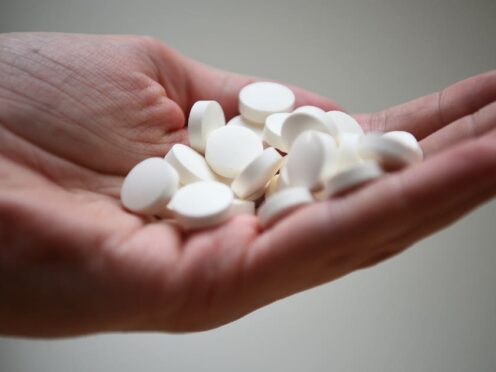New research has found a possible link between vitamin D and improved immunity to cancer.
The study in mice found that the vitamin encourages the growth of a type of gut bacteria which gives the animals better immunity to the disease.
The researchers found that mice given a diet rich in vitamin D had better immune resistance to experimentally transplanted cancers, and improved responses to immunotherapy treatment.
Caetano Reis e Sousa, head of the Immunobiology Laboratory at the Francis Crick Institute, and senior author, said: “What we’ve shown here came as a surprise – vitamin D can regulate the gut microbiome to favour a type of bacteria which gives mice better immunity to cancer.
“This could one day be important for cancer treatment in humans, but we don’t know how and why vitamin D has this effect via the microbiome.
“More work is needed before we can conclusively say that correcting a vitamin D deficiency has benefits for cancer prevention or treatment.”
The researchers were surprised to find that vitamin D acts on specific cells in the intestine, which in turn increase the amount of a bacteria called Bacteroides fragilis.
According to the findings, the tumours did not grow as much, suggesting that the microbe gave mice better immunity to cancer.
In order to test if the bacteria alone could give better cancer immunity, mice on a normal diet were given the bacteria.
These mice were also better able to resist tumour growth but not when the mice were placed on a vitamin D-deficient diet.
Although there has been no conclusive evidence, previous studies have proposed a link between vitamin D deficiency and cancer risk in humans.
To investigate this, the researchers looked at a dataset from 1.5 million people in Denmark, which highlighted a link between lower vitamin D levels and a higher risk of cancer.
A separate analysis of a group of people with cancer also suggested that people with higher vitamin D levels were more likely to respond well to immune-based cancer treatments.
Bacteroides fragilis is also found in the microbiome of humans, but more research is needed to establish whether vitamin D helps provide some immune resistance to cancer through the same mechanism.
Evangelos Giampazolias, former postdoctoral researcher at the Crick, and now group leader of the Cancer Immunosurveillance Group at the Cancer Research UK Manchester Institute, said: “A key question we are currently trying to answer is how exactly vitamin D supports a ‘good’ microbiome.
“If we can answer this, we might uncover new ways in which the microbiome influences the immune system, potentially offering exciting possibilities in preventing or treating cancer.”
Research Information Manager at Cancer Research UK, Dr Nisharnthi Duggan said: “We know that vitamin D deficiency can cause health problems, however, there isn’t enough evidence to link vitamin D levels to cancer risk.
“This early-stage research in mice, coupled with an analysis of Danish population data, seeks to address the evidence gap.
“While the findings suggest a possible link between vitamin D and immune responses to cancer, further research is needed to confirm this.
“A bit of sunlight can help our bodies make vitamin D but you don’t need to sunbathe to boost this process.
“Most people in the UK can make enough vitamin D by spending short periods of time in the summer sun.
“We can also get vitamin D from our diet and supplements.
“We know that staying safe in the sun can reduce the risk of cancer, so make sure to seek shade, cover up and apply sunscreen when the sun is strong.”
The research, published in the Science journal, was funded by Cancer Research UK, the UK Medical Research Council, the Wellcome Trust, and others.
